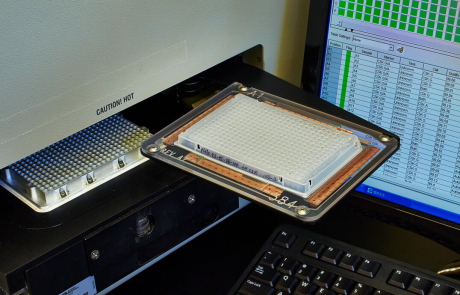
How Immunotherapy Holds Clues to Autoimmunity
Immunotherapy is one of the biggest medical breakthroughs in decades: It can cure some cancers by telling the immune system to find and kill cancer cells.

Join the Sound Life Project: A Study of Healthy Immune Systems
BRI is inviting Seattle-area adults to participate in the Sound Life Project, a groundbreaking research study to build a baseline of knowledge over time about the human immune system to better understand disease.

Matt Dufort, PhD: Crunching Data to Cure Diabetes
Matt Dufort, PhD, fights diabetes one data point at a time. Matt is a bioinformatician at Benaroya Research Institute at Virginia Mason (BRI), where he’s been using his data wrangling and analysis skills to find ways to prevent pancreatic damage in people living with type 1 diabetes (T1D).

Maybe a Baby? 7 Things Docs Want You to Know About Being Pregnant With an Autoimmune Disease
Making the choice to have a baby can be complicated for any prospective parent. When you have an autoimmune disease, that decision can seem even more complex. You may wonder how pregnancy will impact your disease, and whether your disease will affect your baby.

Innovative Collaboration Brings Researchers Closer to Understanding Type 1
What is the difference between an individual whose pancreas will continue producing insulin for 50 years, versus someone whose body may suddenly stop generating it within the next 18 months? That is the question Cate Speake, PhD, spends her days trying to answer.

“When Bodies Break”: Supporting Research and the Chronic Illness Community
Cameron Auxer knows chronic disease. She’s lived with it all her life, from asthma and osteoarthritis to chronic fatigue syndrome (CFS) and fibromuscular dysplasia (FMD).

5 Steps for Writing Poems about Illness, Trauma and Healing
Author and poet Suzanne Edison’s work springs from her personal experience as the parent of a child with a rare autoimmune disease.

Going Public: How Businesses Can Accommodate Your Needs
Managing your autoimmune disease may require quick and easy access to a bathroom, checking your blood sugar in public, finding a step-free route into a store, or knowing that safe foods will be on the menu.

Using Virtual Reality to See Inside Cells
In 2016, two of BRI's information technology experts Garrett Wright and Tom Skillman had a conversation that sparked a novel question: Could virtual reality (VR) headsets let scientists step inside cells and view them in greater detail than ever before?

Aiming for Better Lupus Treatments
Veterans and military members, especially women of color, are more likely to have lupus than the general public — possibly because they’re exposed to toxic chemicals, stress and PTSD. That’s why the U.S.


